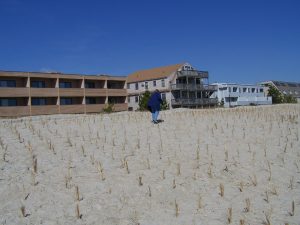NEW CASTLE COUNTY – DNREC Secretary David Small encourages volunteers to join the 25th annual Christina River Watershed Cleanup along the river and several of its tributaries on Saturday, April 9 from 8 a.m. until noon at 15 sites throughout northern New Castle County. The City of Newark site will hold its cleanup beginning at 7:30 a.m., and Brookhaven Park will begin at 9 a.m.
“For 25 years, dedicated volunteers have devoted a Saturday morning to helping beautify our northern waterways in the Christina River Watershed Cleanup,” said Secretary Small. “Clearing debris from the Christina River Watershed not only improves the landscape for residents and visitors to enjoy, it improves the health and quality of the river and its tributaries, the primary sources of public water supply for New Castle County residents and businesses. The work these volunteers do is important, and we thank them for it.”
In honor of the Christina Cleanup’s 25th anniversary, Brandywine Creek State Park, The Nature Conservancy and Delaware’s own First State National Historical Park will host cleanup locations at Thompsons Bridge, Rocky Run and Smithbridge, respectively. This year’s cleanup will be dedicated to the memory of longtime Cleanup Committee member, Dorothy P. Miller of Newark.
The annual cleanup will be held rain or shine. Since the cleanup began in 1992, more than 360 tons of tires, appliances, household items, and plastic and styrofoam have been cleared from the Christina River, White Clay Creek, Naamans Creek and other tributaries. More than 13,000 volunteers have filled trash bags along Churchmans Marsh, White Clay Creek State Park, the City of Wilmington and various other locations.
DNREC has been a sponsor and an integral part of the Christina River Watershed Cleanup since its inception. Specifically, DNREC’s Division of Fish & Wildlife provides planning support in addition to staff, boats, and specialized equipment to transport volunteers and discard trash from remote locations. The cleanup of the river within the city of Wilmington benefits DNREC’s ongoing marsh restoration work at the Russell W. Peterson Urban Wildlife Refuge.
For a complete list of cleanup sites with directions and to register, visit www.ChristinaRiverCleanup.org or call 302-307-2757. Volunteers are encouraged to register for one of the 15 sites by Friday, April 1 so adequate supplies can be provided to each site captain. Due to insurance requirements, volunteers under the age of 16 must have adult supervision.
For safety and efficiency, participants are encouraged to wear brightly-colored clothing, long sleeves and pants, boots or water-resistant shoes, hats, heavy-duty gloves and sunscreen. Waders or hip boots are helpful for the City of Wilmington, Hale-Byrnes House and Churchman’s Marsh-Christiana sites. Additional jon-boat- work boats are still needed for Wilmington’s Riverfront. All participants must wear a life jacket while on board any boat.
Volunteers will receive a 2016 Christina River Watershed Cleanup t-shirt designed by Ramiro Lopez-Villalobos, a senior at Delcastle Technical High School. The 2016 event marks the 11th year for the cleanup’s T-shirt design contest, which is open to New Castle County students in 7th-12th grade. Ramiro’s winning design takes a more modern approach to a traditional cleanup t-shirt design element, the great blue heron.
More than 40 organizations and businesses sponsor the cleanup each year. In addition to DNREC, primary sponsors include: Christina Conservancy, Noramco Inc., Artesian Water Company, Partnership for the Delaware Estuary, Delaware City Refining Company, Horizon Services Inc., BASF – The Chemical Company, GE Aviation, Dow Chemical, Veolia Water, Delmarva Power, Kenny Family Foundation and SUEZ in Delaware.
For more information on DNREC’s programs, visit www.dnrec.delaware.gov.
Media Contact: Joanna Wilson, DNREC Public Affairs, 302-739-9902
Vol. 46, No. 101
